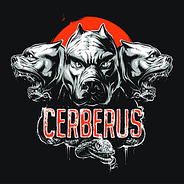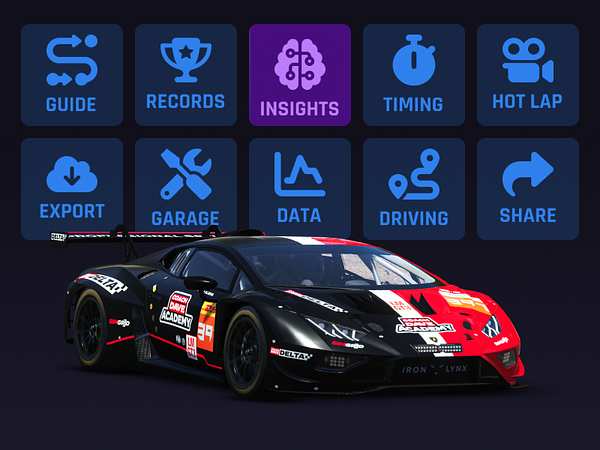Qualifying. Any incidents in qualifying need to be reported to Stewards/Admin for any of the following offences: Blue flags. When not on a clean flying lap, you must yield to any car currently on a flying lap. Do so by moving off the racing line and lifting off the throttle. Penalty for not following the above rule is at Stewards discretion You must run radar, and track Map.
Overtaking It is your responsibility to make sure there is a sufficient gap ahead and that you do not impede leading cars currently on flying laps. If a driver is found to have impeded another car the standard penalty is 5s at Stewards discretion to the driver who overtook. Contact. Contact during a qualifying session often ruins a driver's lap and forces them to return to pits . The standard penalty for Incidents involving contact between two cars on flying laps is 15 seconds at Stewards discretion to the car behind. It is always the following driver's responsibility to make sure they have a sufficient gap ahead to do a flying lap.
Overlap. Overlap is defined as the front wheels of the following car being alongside the rear wheels of the car in front. Stewards will often look at overlap to determine driver responsibility for any given incident. Defending. The car in front can choose any line they like to drive as long as they are ahead of the car behind. However, they are only allowed to change direction once before the braking zone to defend and the defending car is not allowed to move under braking (this includes weaving on straights and under braking). It is allowed (although not advised) for a car to "squeeze" another car to one side of the road so long as they leave more than a car's width of space.
When there is (heavy) contact between cars side by side on a straight, the car that least follows the direction of the road (not racing line) is deemed at fault .
If you are involved in an incident, please be cautious about oncoming cars (hence the requirement of running a track map). If you lose control of your car due to an incident or self-inflicted spin, hold your brakes. This allows you to be as predictable as possible, so other drivers do not have further contact with you or you run into them.
If you are off-track, you must return to the track in a safe and predictable manner off the racing line (otherwise it will count as an unsafe rejoin). Not holding brakes and unsafe re-entries will re- If you are involved in an incident, please be cautious about oncoming cars (hence the requirement of running a track map). If you lose control of your car due to an incident or self-inflicted spin, hold your brakes. This allows you to be as predictable as possible, so other drivers do not have further contact with you or you run into them.
If you are off-track, you must return to the track in a safe and predictable manner off the racing line (otherwise it will count as an unsafe rejoin). Not holding brakes and unsafe re-entries will result in a penalty at the discretion of a stewards. Race.
Blue flags. In a race, getting a blue flag means a car is about to lap you.
When under blue flags, you are not allowed to defend from the lapping car when they attempt an overtake. However, this does not mean you have to immediately slow down to let the lapping car through, as it would in Formula 1. Instead, it is up to the car behind to make a safe passing manoeuvre, and for the lapped car to make sure they do not defend. You should drive predictably and hold your line to avoid an incident with the faster car.
As a blue flagged car, avoid taking the inside line as this can be construed as defending. That being said, it is still advised that cars being lapped make it easier for lapping cars to pass them, as this most often leads to the least amount of time lost for both cars. A good way to do this is to lift a bit on a straight or brake earlier for a corner, but only if the lapping car is alongside. If you have indicators mapped on your steering wheel feel free to use them as it may aide in a safe overtake. Unlapping.
Drivers are allowed to unlap themselves from cars that are laps ahead. Please only do so if you are sure that you are faster than the car ahead and can pull away from them.
After you have unlapped yourself, remember you are still not allowed to defend as long as there are blue flags. Cars off the lead lap will be held more responsible for incidents caused while unlapping themselves. Black and Orange Flag (heavy damage).
In most cases, drivers are shown the black and orange flag when they need to pit for repairs or turn on their headlights. If repairs are needed, drivers may attempt to drive back to the pits, they do so drivers should activate their flashers (left and right turn signals) and do their best to stay out of the way and off the racing line for faster cars. If drivers find they cannot drive back to the pits, they can stop their car off track and teleport to the pits: this will result in ACC deleting their current lap. There is no additional penalty for teleporting to the pits. Overtaking
It is your responsibility to make sure you have sufficient space to overtake a car. This is often classed as Overlap.
Overlap is defined as the front wheels of the following car being alongside the rear wheels of the car in front. Stewards will often look at overlap to determine driver responsibility for any given incident. Be mindful of leaving a racing room when completing an overtake. Contact during an overtake will result in a review by the Stewards. Defending.
The car in front can choose any line they like to drive as long as they are ahead of the car behind. However, they are only allowed to change direction once before the braking zone to defend and the defending car is not allowed to move under braking (this includes weaving on straights and under braking). It is allowed (although not advised) for a car to "squeeze" another car to one side of the road so long as they leave more than a car's width of space.
When there is (heavy) contact between cars side by side on a straight, the car that least follows the direction of the road (not racing line) is deemed at fault .
Racing etiquette. If you are involved in an incident, please be cautious about oncoming cars (hence the requirement of running a track map).
Moving under braking. Swerving on straights. When leaving the pits, drivers are not allowed to cross the white line. Once clear of the white line drivers are free to race. During all sessions drivers exiting the pits must do so in a manner that does not interfere with drivers currently running hot laps. During a race session, drivers leaving the pits have right of way, therefore must be left space by drivers racing on track. Stewarding and Penalties. Penalties are reviewed by multiple stewards during the live stewarding session which takes place after the race.
All penalties issued during stewarding are final and will be at Stewards discretion. If you don’t agree with the decision you have the right to speak up during the stewarding session only. CVR do not tolerate on track retaliation of any kind. Any in game retaliation will result in a disqualification or a one race ban. This includes post race ramming.
Time penalties will only be applied for the race in which they are given, meaning if you retire after causing an incident the time penalty will not carry over to the next race. However, licence point penalties (LPP) will still be counted against you. See more about licence points below. If you cause an incident, we recommend returning any gained positions. Stewards will take this into account when giving penalties ( however it sometimes is not always feasible to do this). We also realize it is not always obvious who's at fault during the race. If unsure, continue racing and let the stewards handle it during the stewarding session. Penalties at Stewards disposal. No further action (NFA).
None of the drivers involved were found at fault for the incident.
The offending driver was at fault, but they were the only one disadvantaged by the incident. Net Code- Yellow flag , Rubber banding , Network Disconnection, Rubbing. Warning. When the offending driver was at fault but there was no time lost to warrant a time penalty (Stewards discretion). Accumulation of three warnings during a race will result in a 5 second penalty. 5 second time penalty. Causing a less sever collision. (Stewards discretion). Passing another car off track and gaining an advantage (Stewards discretion). 15 second time penalty. Causing a more severe collision with another driver, given the driver is predominantly to blame. (Stewards discretion).
Rejoining track in unsafe manner and causing a collision. 30 second time penalty.
This penalty will be given for severe incidents typically involving heavy contact with multiple cars. (Stewards discretion).
Being out of position at the race start causing grid issues to other cars. (Stewards discretion) Qualifying ban. Handed out at Stewards discretion or when exceeding the maximum amount of licence points (more below).
Applied by Admin for the next qualification session ( will be served on the next race that the driver takes part in to avoid drivers avoiding bans). Race ban. This penalty is also given at Stewards discretion, for example when a driver continues to cause incidents after being given a qualifying ban (will be served on the next race that the driver takes part in to avoid drivers avoiding bans). Permanent CVR server ban.
It is at Stewards discretion to issue a permanent ban. This could be due to bad and non improving racing etiquette, deliberately causing a collision, retaliation or driver’s behaviour off track, racism/slurs/derogatory insults.
Lap 1 incidents. Because incidents on the first lap often have much more detrimental effects on race outcome, the time penalty is escalated to the next time penalty step. 5 second penalty becomes 15 second penalty, subject to Stewards discretion. Licence points remain unaffected for lap one incidents. Licence points penalties (LPP). In addition to time penalties, CVR also has a licence point system in place.
Every warning and time penalty carries their own licence penalty points applied to a driver's licence over the course of a season. Each driver will be allowed maximum of 24 points during a season. 12 points will result in a qualifying ban. 24 points will result in a race ban. You will lose 5 points off your licence for every clean race completed (not involved in any incidents of your fault). This will not pass 0 so you cannot accumulate a safety net. Points penalties will be applied as follows.
1 point for each warning. 2 points for each 5 second penalty. 3 points for each 15 second penalty. 4 points for each 30 second penalty. For any questions regarding above rules please contact one of the Admins or Stewards on CVR Discord channel







